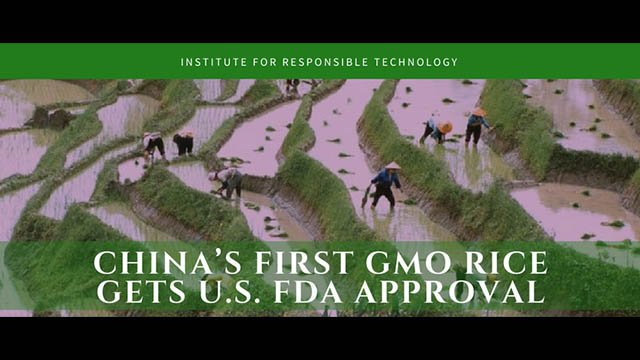Originally published on Sustainable Pulse.
A genetically modified (GM) rice product developed by a group of Chinese scientists has acquired the US Food and Drug Administration (FDA) approval, the first such Chinese product allowed to enter the US market.
However, neither China nor the US has approved mass cultivation of the rice amid low acceptance from the Chinese public for GM food.
Huahui No.1 rice, developed by the Huazhong Agricultural University, is genetically engineered to resist a wide range of insects, thus reducing the use of pesticides.
Lin Yongjun, a professor at Huazhong Agricultural University and one of the scientists that developed the rice, told the Global Times on Monday that Huahui No.1 could not be grown in China as “the country has not conducted regional trials nor provided guidelines to examine genetically engineered rice.”
Lin said his team might consider growing Huahui No. 1 in Southeast Asian countries, “but our reach is limited and we hope the authorities can provide funding and legal support.”
Lin’s university received an email from the FDA on January 11 approving the rice.
The email, which was made public on FDA’s website, said, “Based on the safety and nutritional assessment Huazhong has conducted, it is our understanding that Huazhong has concluded that human and animal foods from Huahui No.1 rice grain are not materially different in composition, safety, and other relevant parameters from rice-derived human and animal food currently on the market, and that genetically engineered Huahui No.1 rice grain does not raise issues that would require premarket review or approval by the FDA.”
“This shows that the FDA recognizes the data and the experimental method used by Chinese agencies in assessing the safety and nutritional value of Huahui No.1, and that the FDA has confidence in the safety of Huahui No.1 as both food and fodder,” Lin said.
The website of Huazhong Agricultural University said Huahui No. 1 was successfully developed as early as 1998 and received a bio-safety certificate from China’s Ministry of Agriculture in 2009 after 10 years of safety assessments.
However, the product has never been approved for commercial planting in China, so the school had been seeking safety approval from foreign agencies since 2009 to prepare Huahui No. 1 for the international market.


